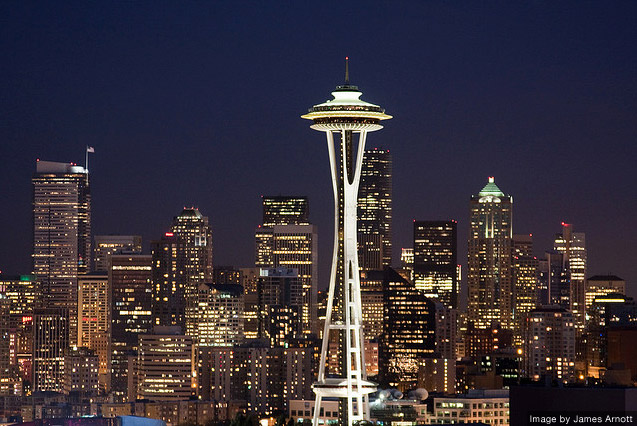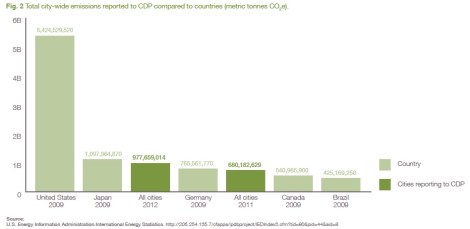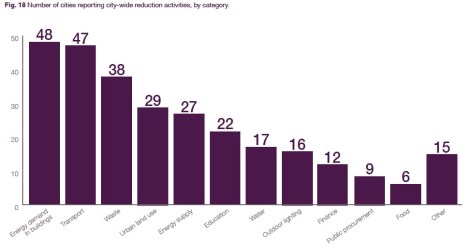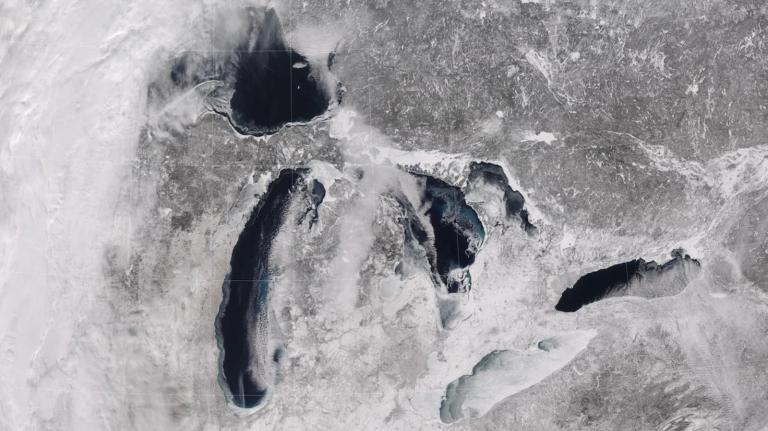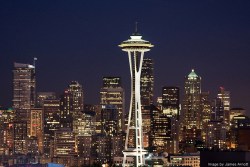
Photo by James Arnott.
While many national governments struggle to take comprehensive action on climate change, major cities around the globe are acting on their own.
The Carbon Disclosure Project (CDP) recently released a report [PDF] tracking initiatives cities are taking to address their greenhouse gas emissions. Many of these municipal governments — plagued by heat waves and flooding — recognize the urgent need to mitigate and adapt to climate change.
Cities account for 70 percent of global emissions [PDF] while occupying just 2 percent of dry land. The 53 cities that publicly disclose citywide emissions together produce more than 977 million tonnes of CO2 — or the equivalent emissions of Germany.
While cities are a major source of carbon emissions, they’re also a hotbed of activity to reduce that global warming pollution.
Reacting to the dangers posed by climate change, 59 cities are taking a total of 630 citywide actions to limit their emissions. The most common measure is reducing the energy demand of buildings, with 133 efforts to do so in 48 cities. Forty-seven cities have also initiated 129 actions to reduce transportation emissions. In order to achieve this, cities are frequently using their general municipal funds, though there also exists “a wide variety of outside sources” like state grants, national funding, and U.N. programs to tap into.
To adapt to a changing climate, these cities are creating urban green spaces, developing storm water capture systems, and promoting “green roofs.” Thirty cities have cultivated green spaces and planted trees to provide citizens a respite from the heat. Six cities have begun developing flood defense systems in anticipation of rising sea levels. This is a major concern for coastal cities, as increases in sea levels are expected to place low-lying urban necessities, such as airports, at risk.
Sixty cities have also identified opportunities for economic growth from green jobs and the development of new industries. Houston expects to create 168,000 green jobs. Portland’s Clean Energy Works program created jobs for 400 workers retrofitting 1,200 homes through a $25 million loan program.
In order to encourage local development of clean energy and emissions reductions, these cities are coming up with innovative solutions to encourage building owners to make changes. For example, Chicago created a competition among commercial building owners in 2009, recognizing local businesses that achieve specific green goals over the course of a year. Another common practice is to streamline the permitting processes for siting clean energy projects.
Moving forward, cities will continue to be the epicenter of action on climate change. Discussing the action cities are taking at Rio+20, New York Mayor Michael Bloomberg told reporters, “We’re not arguing with each other about emissions targets. What we’re doing is going out and making progress.”

